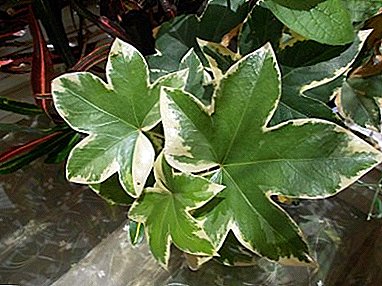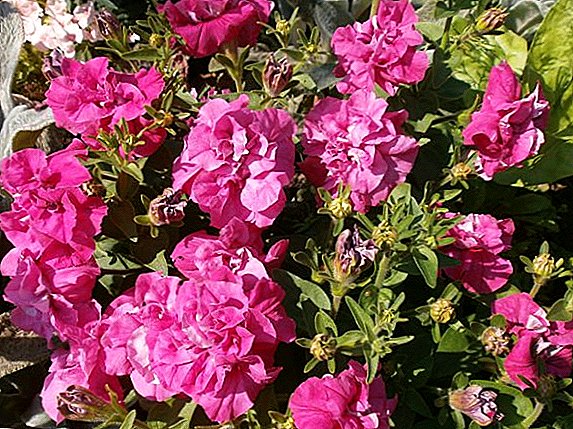 Since ancient times, ginseng grass has been known to many people for its beneficial properties. In the first place, it is used as a general tonic. More often, for these purposes, they use ginseng root (in different forms), which has both beneficial properties and contraindications, which will be discussed mainly in this article.
Since ancient times, ginseng grass has been known to many people for its beneficial properties. In the first place, it is used as a general tonic. More often, for these purposes, they use ginseng root (in different forms), which has both beneficial properties and contraindications, which will be discussed mainly in this article.
Description
Ginseng is a perennial plant. It has a strong, highly developed root system (the length of the root can reach up to 25 cm, with a thickness of up to 3 cm), which is often divided into 2-5 large branches. The color of the roots is white or yellowish white. The plant belongs to the Aralia family and has a total of 12 species.
Did you know? In Korea and China, ginseng root is also used for cooking.The habitat is limited mainly by East Asia, although five leaf ginseng is also found in eastern North America. The stem of the plant has a height of up to 70 cm, and on its top is a whorl consisting of palmate-complex, long-petiolous leaves. During the flowering period, it is crowned with small pale green leaves, which by the end of this time turn into bright red drupes.
Chemical composition
In addition to a variety of different vitamins, macro-and micronutrients, the composition of this plant also includes glycosides (genziosides) and biologically active polyacetylenes. In addition, in its root can be found pectin and tannins, alkaloids, starch, tar, and many other components.
Did you know? The largest root of ginseng was found in 1905 during the construction of the railway in Manchuria, its weight was about 600 g.The composition of the plant also includes triterpenic saponins, called panaxosides (A, B, C, D, E, P). It is also noteworthy that these substances were not found among other members of the Araliaceae family.
The benefits of ginseng
The root of this plant, used in the form of various medicinal variations, is capable of exerting a complex effect on virtually all systems of the human body. However, ginseng has various beneficial properties and contraindications for the body of men and women.  Common properties for both sexes are:
Common properties for both sexes are:
- Restorative and immunostimulating effects.
- Adaptogenic effect.
- Decreased blood sugar levels.
- Improving performance and eliminating the effects of chronic fatigue.
- Mitigate the symptoms of neurosis, neurasthenia and psychasthenia.
- Usefulness in gerontological practice (prolongs life with prolonged use).
- Reducing cholesterol in the blood.
- Stimulation of the adrenal glands.
For men
The main argument, which will contribute to the intake of drugs on the basis of this plant by men, is to increase libido and the overall strengthening of sexual function. Ginseng root increases the speed of sperm, increases the amount of secretion of the prostate gland and normalizes the passage of seminal fluid through the genital tract. The Chinese use alcohol tinctures based on ginseng for the treatment of chronic prostatitis.
Also, celery, mountain ash red, strawberries, parsley, spinach, dill, pumpkin, walnuts, dodder, ginger, cumin, bee pollen, black walnut, yucca, thuya, goldenrod, wheatgrass help with the disease of prostatitis.
For women
Tinctures and teas based on ginseng root improve the quality of hair, nail plates and have a rejuvenating effect on the upper layers of the epidermis in women. Also, the use of this plant by women helps to reduce their weight and normalizes the secretion of all the sex glands. Some associate the dependence of the fact of regular use of these drugs with a reduced level of breast cancer. In addition, ginseng root powder in small doses is an aphrodisiac for women.
Natural aphrodisiacs are sage, cloves, coriander, lychee, saffron, thyme, bilaminate, actinidia berries, horseradish.

Medical applications
In addition to homeopathic remedies and folk recipes, which include various tinctures, teas, ointments, pastes and decoctions, the root of this herb finds quite successful application in modern medicine.
In modern
In most cases, alcoholic tinctures, various tablets and capsules with a complex of various components are used, including, among others, ginseng, for example: Herbion, Dopelgerc, Teravit, Multi-Tabs, Vitrum and others.
Important! Do not take vitamin complexes, which include this plant, courses lasting more than 30 days, especially if you have not yet reached the age of 30.First of all, modern therapy recommends these drugs for the complex treatment of neurasthenic syndrome, asthenic conditions of various etiologies, weakening of sexual function, during recovery from viral and microbial infections, in order to increase efficiency and during periods of increased physical and mental activity.

In folk
If in their homeland a greater prevalence of water extracts of the root of this herb, the national folk medicine uses more alcohol dosage forms. In addition, widespread tea with ginseng, which brings significant benefits to older people and harms young organisms.
Traditional medicine recommends taking medications based on this root to older people, to prolong life, to treat gastritis with reduced secretory function, to eliminate joint and headache, from thromboembolic disease of the lower extremities, and as a remedy for colds.
For the treatment of gastritis in folk medicine, safflower, gentian, Kalanchoe Degremona, aloe and honey, calendula, sunberry, blackberry leaves, ambrosia, medicinal veronica are used.
The recipe for the most popular ginseng tincture is: dry root, after pre-grinding, pour vodka at the rate of 1 l of vodka per 30 g of powder, then insist for 3-4 weeks, stirring occasionally. After a fixed period of time, the infusion is filtered to obtain a ready-to-use liquid.
For tea from ginseng root, take a powder and pour boiling water at a ratio of 1:10; after ten minutes of infusion and straining, get a ready-to-use product. It is worth to drink 1 tablespoon 20 minutes before meals, 3 times a day in a course of 30 days. If necessary, the treatment can be repeated after another 30 days.  Decoction obtained by adding to 2-3 tablespoons of ground root several glasses of water. This mixture is boiled over low heat for 3-5 minutes. After cooling and straining get ready to use the final product.
Decoction obtained by adding to 2-3 tablespoons of ground root several glasses of water. This mixture is boiled over low heat for 3-5 minutes. After cooling and straining get ready to use the final product.
Contraindications
With all the mass of beneficial properties, there are states when taking ginseng is limited. These include:
- Inflammatory and infectious diseases in the acute stage.
- Increased bleeding and menstrual processes in women.
- Pregnancy.
- Increased excitability.
- Hypertonic disease.
Important! Do not take drugs on the basis of ginseng after dinner, as this may cause sleep problems.It is also not recommended to mix these drugs with alcohol intake, as this may provoke a migraine attack and further enhance the toxic effect of the latter.
So, we can say that ginseng is not without reason called in his homeland "the root of life." Who will refuse a substantial extension of the period of its existence, especially if it is so easy to achieve this result? However, we still advise you to carefully study the list of contraindications in order to find out whether taking medications based on it will be safe for you.












